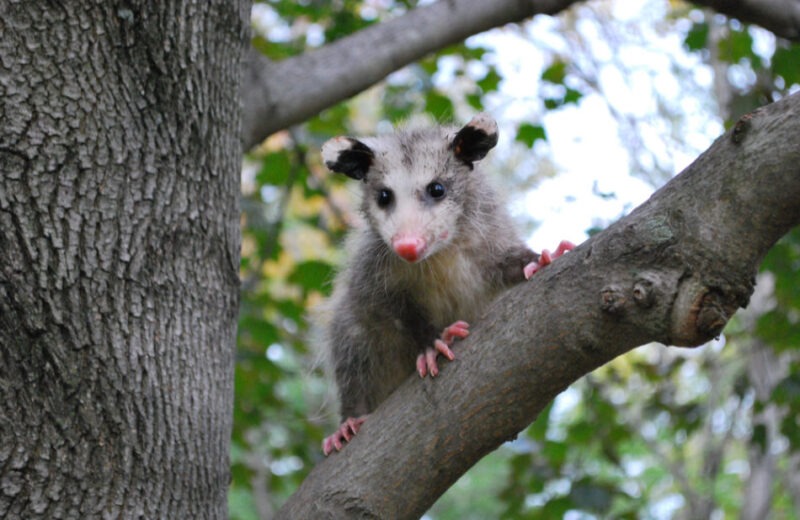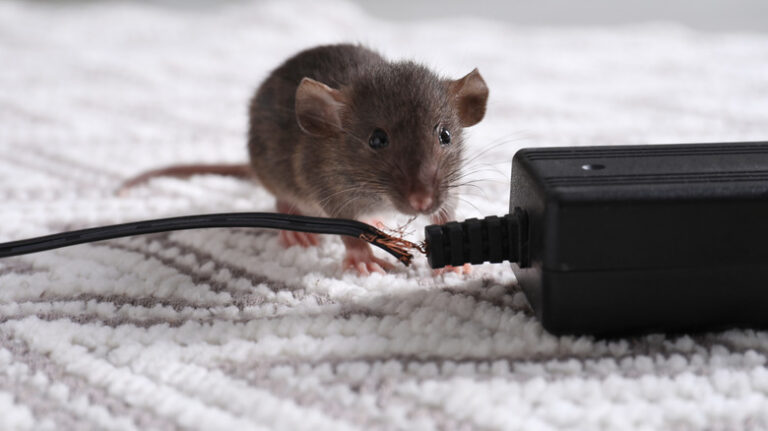Do Possums Come Out During the Day? A Detailed Look
Overview
Due to their nocturnal habits, possums are sometimes misunderstood, despite being intriguing animals that are vital to the ecology. There has been much interest in their behavior, especially in relation to their activity during the day. The key to better understanding possums’ lifestyle and how to coexist with them is knowing when they are most active.
In this comprehensive article, we will delve into the question: Do possums come out during the day? and explore the factors influencing their daytime activity.
Possum Behavior
Possums are primarily nocturnal creatures, which means they are most active during the night. This is when they hunt for food, socialize, and engage in various survival behaviors. Their nighttime activity is driven by several factors, including avoiding predators, seeking food, and the cooler temperatures that make nighttime more favorable for these small marsupials.
Possums typically emerge after dusk, making their way through trees and underbrush in search of food. These nocturnal habits have evolved as a protective mechanism, reducing their exposure to daytime predators like birds of prey and larger carnivores. However, the question arises: Do possums ever come out during the day?
Can Possums Be Active During the Day?
While it is uncommon for possums to be out during the day, it is certainly not impossible. In certain circumstances, possums may be seen during daylight hours, though this behavior is typically out of the ordinary. The following factors can influence a possum’s daytime activity:
1. Food Availability
Possums are opportunistic feeders, meaning they will adapt to whatever food is available. If food sources are scarce during the night, possums may extend their activity into the day. They may also be more likely to venture out if they feel hungry or need to replenish their energy reserves.
For instance, urban possums living near human habitation may be drawn to food scraps or pet food left outside, prompting them to become more active during daylight hours.
2. Temperature and Weather Conditions
Extreme weather conditions can also cause possums to alter their activity patterns. In particularly hot climates, possums may adjust their schedules to avoid the intense heat of the night and seek cooler conditions during the day. On the other hand, in colder weather, they may remain more active during the day to conserve warmth, as nighttime temperatures can drop significantly.
3. Young Possums
Young possums, especially those that are still learning the ropes of survival, might display more daytime activity. They may be more prone to wandering out during daylight hours, as they have not yet fully adapted to the strict nocturnal lifestyle of adult possums.
It is also possible that young possums may be more vulnerable to daytime predators, which could lead them to seek shelter during the day.

Signs That a Possum is Active During the Day
If you suspect a possum is active during the day, there are certain behaviors and signs to watch for:
- Lack of Hiding: Possums are typically shy animals that prefer to hide during the day, especially if they feel threatened. If you notice a possum out in the open, it might be a sign that something is amiss—such as illness, food scarcity, or distress.
- Erratic Movements: A possum that is normally nocturnal might exhibit unusual or sluggish behavior during the day. They may seem disoriented, which can be a sign of sickness or injury.
- Nesting in Unusual Locations: While possums typically nest in hollow trees or similar shelters, during the day, they might take refuge in places where they would not normally hide at night. These areas might include basements, attics, or even under vehicles, where they feel safe from predators.
Why Do Possums Avoid Daytime Activity?
There are several reasons why possums are generally reluctant to be active during the day:
1. Predators
Possums have many natural predators, including hawks, owls, foxes, and large cats. To avoid these dangers, they remain active during the night when the risk of predation is much lower. During the day, the presence of these predators is heightened, which makes daytime foraging and movement a more dangerous activity for possums.
2. Predatory Instincts of Humans
Human activity also plays a role in a possum’s decision to stay out of sight during the day. Urban and suburban areas, where possums are more likely to be found, present numerous threats, from domestic animals like dogs to traps set for pests. Possums, therefore, prefer to stay hidden during daylight hours, reducing their exposure to these dangers.
3. Energy Conservation
Possums are solitary animals, which means they rely on their own instincts to survive. As a result, their nocturnal habits allow them to conserve energy and avoid unnecessary physical exertion during the day. Their metabolism and overall activity levels are geared toward nighttime behavior, which ensures they remain efficient hunters and scavengers when darkness falls.

Do Possums Come Out More Frequently in Urban Areas?
Possums living in urban environments may exhibit slightly different behavior than their rural counterparts. Urban possums are more accustomed to human activity and can often be seen rummaging through garbage bins or seeking shelter in attics and basements. These animals may have more consistent access to food and might be seen more frequently, even during the day.
In cities, possums adapt to the constant supply of food and fewer natural predators, which can sometimes lead to them becoming more diurnal. However, they still retain many of their nocturnal instincts and typically prefer to be active at night. The presence of food scraps, outdoor pet food, and the relative safety provided by human structures can encourage daytime activity.
Health Issues and Daytime Activity
If you notice a possum that is unusually active during the day, it may be a sign of illness or injury. Possums, like any other animals, can suffer from various health issues that may make them lethargic, disoriented, or more prone to daytime activity. Common health problems among possums include:
- Parasites: Possums can carry ticks, fleas, and mites, which can affect their health and behavior.
- Injuries: Possums that have been hit by vehicles or attacked by other animals may be more vulnerable during the day due to their inability to find adequate shelter or food.
- Disease: Possums are susceptible to diseases like leptospirosis, which can affect their overall health and lead to abnormal behaviors.
If you encounter a possum that is unusually active during the day and appears to be struggling, it is best to contact a wildlife rescue organization or a local animal control service to ensure the animal receives the care it needs.
Conclusion
In summary, while possums are primarily nocturnal, there are certain conditions under which they may be active during the day. Factors such as food scarcity, extreme weather, young possums, and health problems can all influence a possum’s decision to venture out during daylight hours.
By understanding these factors, we can better coexist with these fascinating creatures and ensure they thrive in their natural habitats. Whether you encounter a possum during the day or night, remember that their behavior is deeply connected to their survival instincts and environmental factors.







